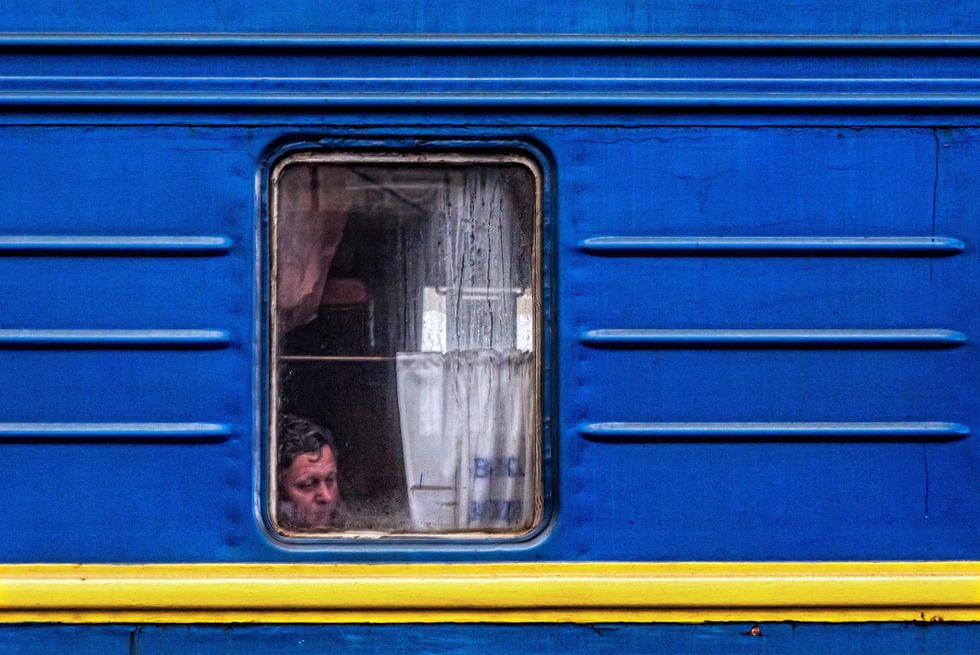Russia’s Intensifying War on Ukraine
From the Series: Russia’s War in Ukraine, Continued
From the Series: Russia’s War in Ukraine, Continued

It is late March 2022 as we publish a second group of essays on the war in Ukraine. Russia’s military atrocity bleeds into its second month. International news media and social media are full of descriptions and analysis of the appalling impacts of Russia’s attacks. A vast humanitarian catastrophe has been unleashed by the devastation to hospitals and other forms of essential infrastructure and the unrestrained targeting of civilian populations. More than 60 percent of all Ukrainian children—that’s 4.5 million kids—have been displaced by Russia’s inconceivably cruel war, and that number keeps growing. The sustained and courageous Ukrainian resistance to Russia’s military incursions also continues. Stories of how Ukrainians are fighting, supporting the defense of their country, and coping reveal how profoundly traumatized and injured so many are. Their requests for help pour out to the world, and many have responded.
As this series goes live, Russian forces are shelling Lviv in far western Ukraine, this only one day after Russian officials announced “phase 2” with a new goal of capturing several key eastern provinces. People outside of the Russian misinformation sphere struggle to absorb the excruciating empirical realities, the subversive rhetoric that sows confusion, and the grave geopolitical lessons of this war. At the same time, Russia’s far-reaching propaganda and global gaslighting campaigns work overtime to create a fictive view of the war and provoke maximal hatred inside Russia toward Ukraine and “the Western political order,” with all its demonized “wokeness” and “cancel culture.” Analysts and journalists offer their best projections as to how far Vladimir Putin wants and will be able to go in his criminal quest to obliterate Ukraine, and in his larger project to destroy Euro-American alliances.
In this flood of awareness and agony, detailed anthropological insights from within and beyond Ukraine matter. The ethnographers writing for this Hot Spot collection get inside the utterly upturned reality of everyday life in a war zone. They begin to analyze the cognitive, psychological, and cultural injuries and transformations that come from living through this particular war. They remind us of the limits of perception and analysis. Ethnography helps us look back at the many presentiments of this war in Russia, at the social cleavages and discourses of hatred that fieldwork revealed, but whose incipient capacity for sadistic war went underrecognized. Even in the heart of a Ukraine besieged, ethnography allows anthropologists to record and consider systems of solidarity, generosity, and the capacity to aspire to a fundamentally different future. Ethnography also foretells the deep abysses of alienation and hatred that this war will create, alongside those that have become entrenched since the initial outbreak in 2014 of armed combat in a hybrid war.
The war both forces and helps anthropologists think about the challenge of terrible violence and the violation of sovereignties, certainties, and coalitions, not to mention how this can sharpen our methodologies and theoretical tools. In many ways, the anthropology of this war reaffirms the absolute importance of longstanding networks of scholarly affiliation, commitment, and engagement, some of which have seemed less important the further removed we are from 1989 and 1991. Some of the anthropologists in this series have worked together on projects since that momentous time when the Berlin Wall came down and the USSR was dissolved (notably, by political treaties and referenda, for the most part, not by war). Other contributors write of how their dissertation research has been overtaken by war. Together with many colleagues across the world and in many venues, anthropologists working in Eurasia have for three decades now collectively analyzed and argued about the meanings and impacts of postsocialism and postcolonialism. In most years, this work proceeded in a steady, quiet, centrifugal ethnographic fashion, where anthropologists worked across diverse field sites on the many dimensions of social reality that engage our discipline: kinship, networks, medicine, food, infrastructure, discourse, religion, human-nature relations. Now the anthropological project must by necessity turn centripetal again: focusing on core, global questions that can now be seen as critical to the survival and peace of not just Ukraine but the planet. War, armaments, militarism, propaganda, power, imperialism, justice, and the exterminist reality of nuclear weapons: these are the topics toward which anthropologists must again aim, as they did in prior eras, during prior wars. Russia’s terrible war in Ukraine demands the complexity of investigation that ethnography allows. And it reminds us of the extraordinary power of shared insight, collaborative engagement, and courage, especially for those on the front lines of this atrocious war.